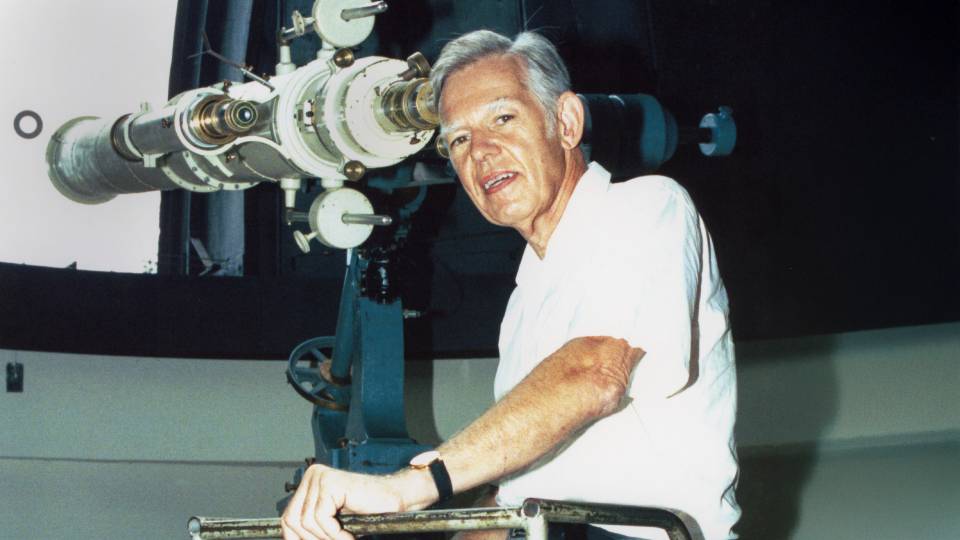Ronald Davidson, a professor of astrophysical sciences at Princeton University and a physicist at the Princeton Plasma Physics Laboratory (PPPL), has been awarded the James Clerk Maxwell Prize for Plasma Physics.
The prize is granted annually by the American Physical Society. It honors outstanding contributors to the field of plasma physics and fusion research.
Davidson is being recognized for making numerous fundamental theoretical insights in several areas of pure and applied plasma physics. Those include his investigations into a special form of ionized gas known as a nonneutral plasma and inquiries into the behavior of the charged particles making up intense beams. Harnessing plasmas and controlling beams of energy are integral to the goal of producing fusion energy.
"Ron Davidson is a prodigiously productive scientist," said Rob Goldston, director of PPPL, which is funded by the U.S. Department of Energy (DOE) and managed by Princeton. "His work, and the work of his group, has defined the field of nonneutral plasmas, including the intense beams that are effectively very fast moving plasmas of this type."
Goldston also praised Davidson for his contributions to the lab's theory department and his work with the National Academy of Sciences, where he led a group that provided the fundamental road map for the future of plasma physics. "Ron's successful and broad scientific career makes him more than deserving of this highest award in plasma physics," Goldston said.
Davidson, who served as the director of PPPL from 1991 to 1996, heads the lab's beam dynamics and nonneutral plasma division. He is also deputy director of the Virtual National Laboratory for Heavy Ion Fusion Science, a collaborative effort among researchers at PPPL, Lawrence Berkeley National Laboratory and Lawrence Livermore National Laboratory. He has been the editor of the journal Physics of Plasmas since 1991.
"Professor Davidson's fundamental contributions to plasma kinetic theory have had very broad impact in the diverse areas of beam and accelerator physics, free-electron lasers, space plasma physics and nonneutral plasmas," said Amitava Bhattacharjee, the Paul Professor of Space Science and Physics at the University of New Hampshire and chair-elect of the American Physical Society's Division of Plasma Physics. "His encyclopedic knowledge and deep understanding of these areas are reflected in his textbooks, some of which have become classics in the field and have educated several generations of scholars."
Since his graduation from Princeton with a Ph.D. in plasma physics in 1966, Davidson has held a number of distinguished positions, including a post as director of the Plasma Fusion Center at the Massachusetts Institute of Technology.
He was won numerous awards, including the Institute of Electrical and Electronics Engineers Particle Accelerator Science and Technology Award, the Kaul Foundation Award for Excellence in plasma physics and fusion energy development, the DOE's Distinguished Associate Award and the Fusion Power Associates' Leadership Award. Davidson also is a fellow of the American Physical Society and the American Association for the Advancement of Science.
Davidson will receive the award at the American Physical Society-Division of Plasma Physics annual meeting in Dallas in November. The award consists of $10,000 and a certificate.
It was established in 1975 by representatives of the firm Maxwell Technologies Inc. in honor of Scottish physicist James Clerk Maxwell and is presently sponsored by General Atomics in San Diego.
Past PPPL recipients include the late Lyman Spitzer in 1975, the late Thomas Stix in 1980 and the late Harold Furth in 1983. Winners also include Russell Kulsrud, a professor emeritus of astrophysical sciences, in 1993, and Nathaniel Fisch, a professor of astrophysical sciences, in 2005.
